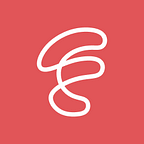Sleeping with the ‘tech’ enemy…
Can technology really help you to sleep better? And why is it important for your mental health?
Along with theories that technology is making us ‘lazy, less sociable, and less intelligent’, it has also been blamed for another issue that affects millions of people in the U.S. alone: insomnia.
And it’s true, the blue light that is emitted from technology such as phones, eReaders and computers, does disrupt the body’s natural rhythmic cycles, which are delicate and meant to detect natural light. Our dependence on technology and devices has led them to become our companions, even down to bedtime, and many people admit that reaching for their device to scroll through Instagram or a news app is the first thing that they do when they wake up.
Insomnia itself is linked to many chronic conditions including mental health issues such as depression. However, on opposition to popular misconception, the solution to the problem may not be foregoing tech and devices completely, but simply using them in a smarter way. In other words, the solution could exist in the instruments of the cause itself. Thanks to technology, we’re now able to augment our sleep with intelligent pillows and track our sleeping habits to optimize our natural rhythm.
The consumer sleep technology industry is growing rapidly, and experts in the field predict that the global sleep aids market, which, as well as sleep tech includes solutions for insomnia will be an $80 billion dollar industry by 2020.
From apps to wearables, and everything in between, are technologies that prove tech might not be ruining sleep, after all. Let’s check out a few of of these such examples:
2Breathe: Device, App
A smart device which, combined with a smartphone app, helps to put you to sleep by detecting your breathing rate. Designed by a father and son team, 2breathe is a sensor that is worn around your waist and sends the data received, via Bluetooth to your phone which plays soothing tones to synchronize with your breaths.
Nyx Somnus Sleep Shirt: Wearable
A nightshirt embedded with fabric electronics to monitor the wearer’s breathing patterns. A small chip that is worn in a pocket of the shirt processes the data it receives to determine the phase of sleep that the wearer is in, such as REM sleep (when we dream), light sleep, or deep sleep.
Zeo: Smart alarm clock
An alarm clock that monitors sleep states (e.g., REM) and attempts to wake people up in the most opportune stage of sleep. The state of sleep is detected by a headband and a bedside base unit awakens the sleeper during the last light sleep phase before the desired waking time.
Tailor: Smart Pillow
A Smart Pillow that uses an array of sensors to achieve advanced sleep tracking. It uses a technique called PhotoPlethysmoGraphy, with detects data from the carotid artery in the neck to provide an accurate measurement of your heart and respiratory rate.
While you sleep, Sleep Cycle rests under your pillow and works to gather data. The app then uses that information to wake you up when you’ll feel the least groggy. Easy-to-read graphs help you make sense of your sleep patterns. Its’ newest version now has patented sound technology that can detect snoring. There are a number of apps that are designed to help with insomnia in this way, but Sleep Cycle is a highly rated one.
The S+ by ResMed is the world’s first non-contact sleep tracking system that helps you analyze and improve your sleep from the very first night.
S+ by ResMed records the light, noise and temperature conditions in your room, and has features that help you sleep more easily. It syncs with your smartphone to provide tailored feedback and suggestions on how to improve your sleep routine and the sleep conditions in your bedroom.
This smart device is said to track all four stages of your sleep (sleep onset, light, deep and REM) and send you personalized advice that you can use to improve your sleep.
So, as you can see, there are a number of tech gadgets and items to help you with your the quality of your sleep, meaning that you don’t need to blame all technology for the disruption of your sleep. Just be sure to use technology in a smarter way to develop better ways for restorative sleep. This is certain to positively affect your physical and mental well-being! Not sure? Sleep on it ;)
Feels like you can add to the list? Go ahead and let us know in comments!
If you enjoyed this article please recommend and share so more people find the real value within it! And don’t forget to get your copy of 5 simple CBT Mental Health tips to start practicing now ⇨ subscribe for our news, updates and tips on Mental Health here!
